Identifying Venomous Snakes in North Florida
Recognizing Snake Bite Symptoms in Dogs
Living in the beautiful region of North Florida comes with its perks, but it also means that we share our surroundings with various wildlife, including snakes. While we appreciate nature’s diversity, it’s essential to be prepared and informed about what to do if your beloved canine companion encounters a snake and gets bitten. At Intracoastal West Vet Hospital in Jacksonville, FL, we understand the urgency of such situations and are here to guide you through the steps you should take if your dog is bitten by a snake in our area.
Identifying North Florida’s Venomous Snakes
North Florida is home to several species of snakes, some of which are venomous and pose a potential threat to our pets. The venomous snakes found in the region include:
1. Eastern Diamondback Rattlesnake
2. Cottonmouth (Water Moccasin)
3. Pygmy Rattlesnake
4. Timber Rattlesnake
5. Coral Snake
**Images are in order from the snakes listed above.
Recognizing Snake Bite Symptoms
A snake bite can have varying effects on dogs, depending on factors like the snake’s species, the amount of venom injected, and the location of the bite. For example, bites to areas of a dog’s body with lots of blood vessels (“highly vascularized” in vet-speak) are more dangerous than those to less vascularized areas. Bites to the trunk are more serious than those to the face. Bites to the tongue are extremely dangerous, as are bites that land directly into an artery. But every venomous snakebite is unique. Treat each one as though it were the worst case. As a responsible pet owner, it’s crucial to recognize the common symptoms of a snake bite, which may include:
1. Sudden weakness and collapse, followed by apparent recovery
2. Muscle tremors, shaking, or twitching
3. Diarrhea and/or vomiting
4. Unsteadiness or weakness in the hind legs
5. Excessive salivation, drooling, or frothing at the mouth
6. Bloody urine
7. Dilated pupils
8. Paralysis
Immediate Actions:
If you suspect or witness a snake bite incident involving your dog, it’s essential to take immediate action to maximize their chances of recovery:
1. Stay Calm: Keeping yourself composed will help reassure your pet and prevent further stress.
2. Remove from the Area: Safely remove your dog from the vicinity of the snake to avoid additional bites.
3. Contact Intracoastal West Vet Hospital: Call our clinic right away to inform us about the situation. This step allows our team to prepare for your arrival and provide timely care.
** If it is after hours, we recommend seeking help from:
PURE Urgent Care and ER (904) 922-PURE (7873)
First Coast Emergency in Jacksonville Beach, FL (904) 853-6310
4. Limit Movement: Keep your dog as calm and immobile as possible. Reducing physical activity can slow the spread of venom through the bloodstream.
5. Identify the Snake (If Safe): If possible, try to remember or take a photo of the snake without putting yourself or your pet in danger. However, please do not attempt to catch or handle the snake, as it can be hazardous.
What NOT to do:
In the event of a snake bite, it’s crucial to avoid certain actions that may exacerbate the situation:
1. Do Not Attempt Home Remedies: Applying tourniquets, ice, or attempting to suck out the venom can do more harm than good and should be avoided.
2. Avoid Delay: Do not postpone seeking veterinary care. Prompt treatment is essential for your pet’s well-being.
Treatment at Intracoastal West Vet Hospital
Upon arriving at our veterinary hospital, our experienced team will assess the severity of the snake bite and administer appropriate treatment. This may include providing antivenom based on the snake species, supportive care, and monitoring your dog’s progress.
Are Certain Dogs More Susceptible to Snakebites?
When it comes to snakebites, certain factors can make some dogs more vulnerable than others. Size plays a significant role, with smaller dogs being at greater risk. Additionally, very young, elderly, or debilitated dogs may also face an increased likelihood of snakebite incidents. Another group of dogs at higher risk are those with flat faces, as facial swelling can be particularly dangerous for these breeds.
Preventive Measures
While snake encounters cannot always be avoided, you can take proactive steps to reduce the risk:
1. Keep Your Yard Tidy: Regularly mow your lawn and remove potential hiding spots for snakes.
2. Leash Your Dog: When walking your dog in natural areas, keep them on a leash to prevent unintended encounters.
Knowing how to respond if your dog is bitten by a snake in North Florida can be lifesaving. At Intracoastal West Vet Hospital, we are here to provide immediate care and support for your pet in such emergencies. Remember, staying calm and seeking professional veterinary attention promptly are the keys to ensuring your dog’s well-being. By taking preventive measures, you can further protect your furry friend from potential snake encounters in our beautiful region.

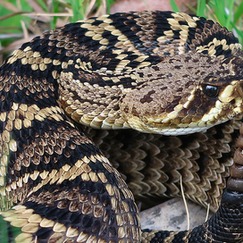
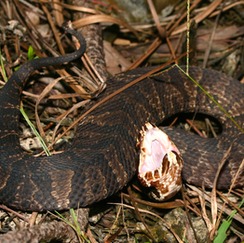
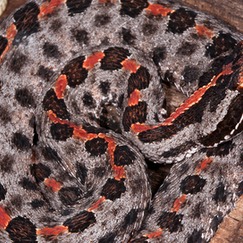
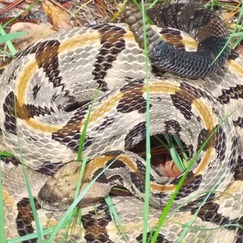
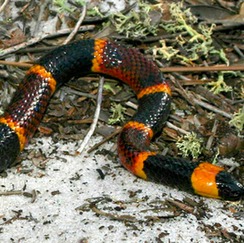



Leave A Comment